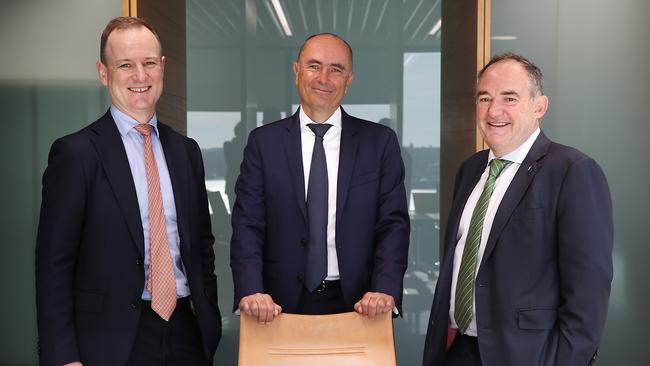Investment challenge as share slide upsets the asset apple cart
A big drop in the value of public markets during the June quarter brought new levels of uncertainty to private equity, leading to a substantial decline in activity levels.

It is known as the denominator effect: when a big drop in the value of public market holdings forces an increase in the proportion of private market interests held in an investment portfolio.
For the world’s biggest asset managers, it has the potential to dramatically impact fundraising and new commitment activity in private markets. It can even force them to sell assets to rebalance their portfolios.
Right now, it is the greatest source of concern for one of the world’s top private equity managers, for what in recent years has been the hottest sector of global investment.
A big drop in the value of public markets during the June quarter brought new levels of uncertainty to private equity, leading to a substantial decline in activity levels compared to the previous year. “If you think about a public pension plan that has target allocations to private equity of 15 per cent, that shot up to, let’s call it, 20 or 25 per cent,” Sven-Christian Kindt, the head of private equity portfolio solutions in the Private Markets Group at global financial services giant Credit Suisse, told The Australian in an interview during a two-day visit to Sydney to see clients.
“So certain partners are stopping doing new commitments, which of course has an impact on the overall industry. Or secondly, they also go into the secondary market and try to sell off assets. That, of course, also has an impact.”
There have been growing concerns in recent months that the combination of inflation, less available debt and the valuation gap between private and public markets would make returns in the private equity sector more challenging.
This could have substantial ramifications for investment portfolios, given the massive pivot to alternative assets such as private equity, private debt and hedge funds, amid a global push by managers for increased diversification.
But Kindt says one of the greatest mistakes made by investors is to try to time investments in private equity markets.
“Be consistent, be diversified. Achieve equal exposure across vintages over a long period of time,’’ he says, noting the investment timeline in private equity is three to five years, not six months.
“Be stubborn, commit every year and on average, you will be better off than trying to time the market.”
While private equity’s outperformance has traditionally come from a liquidity premium when investors are prepared to lock up their money for a significant period, there have been concerns that quarterly mark-to-market valuations may see private equity assets written down.
But Kindt says he is optimistic valuations in operating companies owned by private equity managers can continue to hold up.
“So far, we haven’t seen much of an impact on the valuation side. You think about March and also June valuations, they have been sort of trending sideways, in some cases they’ve gone up. When it comes down, it comes down by 2 to 5 per cent,” he says.
He notes that the operating performance of the underlying portfolio companies across the Credit Suisse portfolios has been “extremely strong”.
Credit Suisse’s wealth management business in Australia has been providing its private clients with access to global private equity markets since 2015.
Since 2018 it has been running the annual Seasons Global Program, which offers investors unique access to a single-vintage basket of high-quality private equity funds run by elite global managers. Many have as much as four decades experience in private equity investment.
There have been five funds raised in the Seasons Global Program, worth $US1.53bn.
About 14 per cent has been contributed by Australian clients, making it Credit Suisse’s third biggest global market after Switzerland and Europe.
“The structure of the Australian market and the coverage of super funds in the press gives our client base a level of comfort compared to other regions in the world. So our clients do tend to fight above their weight compared to Credit Suisse around the globe and where we are allocating money,” says Stephen Cabot, a Sydney-based executive director of Credit Suisse Wealth Management. He says there has been a significant increase in private equity allocations from the bank’s local clients compared to the “sporadic allocation” when products were first offered in 2015.
The Seasons Global Fund V closed in November last year at $US520m and it has so far delivered an IRR (internal rate of return) of 20 per cent.
The first four funds – the first was worth $US92.4m in 2018 – have delivered returns as high as 47 per cent.
Shaun McMenamin, the local managing director of Credit Suisse Wealth Management, says a significant proportion of the bank’s local client base has now committed to the Seasons Global Program.
“If clients commit over probably five or six years, at the end of six years these things become self-financing. If we are lucky enough to put $1 in and to get $2 out, they do compound the portfolios really well,” he says.




To join the conversation, please log in. Don't have an account? Register
Join the conversation, you are commenting as Logout